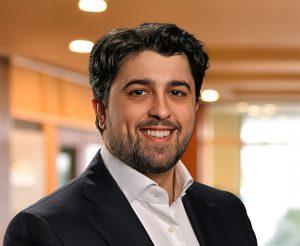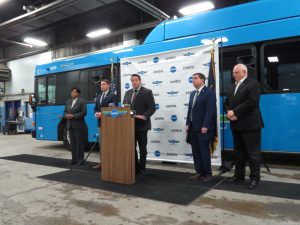 VESTAL — With gas prices hovering around $4 a gallon, the concept of a car that can travel 1,500 miles on a single gallon of gas sounds amazing.
VESTAL — With gas prices hovering around $4 a gallon, the concept of a car that can travel 1,500 miles on a single gallon of gas sounds amazing.
While there isn’t a car at your local dealership that will offer that kind of mileage, developing such a vehicle is the goal of a team of students from the Thomas J. Watson School of Engineering and Applied Sciences at Binghamton University who are building a competition-level “supermileage” car.
“It’s how we have the students learn about new concepts in engineering and design,” says Gary George, an adjunct lecturer in the university’s mechanical-engineering department and faculty adviser for the project. “The students have to do all their planning, all their engineering, all their design, and build it.”
(Sponsored)

Ask the Expert: Top 5 IT Investments in 2026 to Drive Growth
In recent years, “digital transformation” has meant investing in new tools, migrating to the cloud, and adapting to hybrid work. As we look ahead to 2026, the conversation will shift

“They are family. They would never do that!” Our guard comes down as it is hard to imagine a family member capable of business fraud. Unfortunately, that is when the
In addition, the students also learn about the business of being an entrepreneur with an idea or invention as they have to do all their own marketing to promote the project and solicit donations to fund the project, George adds.
While the team seeks to win when it competes at the Society of Automotive Engineers (SAE) International’s Supermileage competition June 7-8 at the Eaton Corporation Marshall Proving Grounds in Marshall, Mich., the ultimate prize the team earns is about so much more than that, George says.
Not only are these students working with cutting-edge technology such as direct fuel injection and electronic-control systems that enhance mileage, they are also learning about sales, marketing, and how to effectively communicate in the business world.
The competition also sets these students up with opportunities to network with auto manufacturers and other companies that could lead to a job after graduation, he adds. One student, in fact, is already interviewing with a NASCAR racing team. NASCAR teams have a big interest in direct fuel injection, which has helped the student draw interest, George says.
Auto manufacturers will also be out in full force at the Michigan event as the pressure is on them to produce cars that get better gas mileage, George notes.
The cars raced at Supermileage are nothing like what you would see out on the road, George says. Binghamton’s car has a carbon-fiber tub and lacks a normal frame in order to make it as light as possible. Sort of a pod on three wheels, the car uses direct fuel injection coupled with an electronic-control system to boost its mileage into the “super” range. The student driver will also turn off the engine and coast for parts of the car’s six-lap run around the track to further boost the mileage, he says.
While that’s not practical for regular vehicles, technologies used at the Supermileage event could eventually make their way to Detroit as auto manufacturers look for ways to make cars greener through improved efficiency.
“There’s no doubt about it,” George says. “There’s big interest.” Cadillac is already using direct fuel injection in some of its vehicles, he says.
Participating in Supermileage is also a great experience for the students because they will be competing with engineering students from around the world. More than 40 universities from around the United States, South America, China, and Japan will participate at the event in hopes of winning the U.S. national championship. Binghamton University has placed as high as fourth in past competitions, George says.
Supermileage is one of several events organized by SAE International in its Collegiate Design Series. SAE International is a global association of more than 121,000 engineers and related technical experts in the automotive, aerospace, and commercial-vehicle industries.



